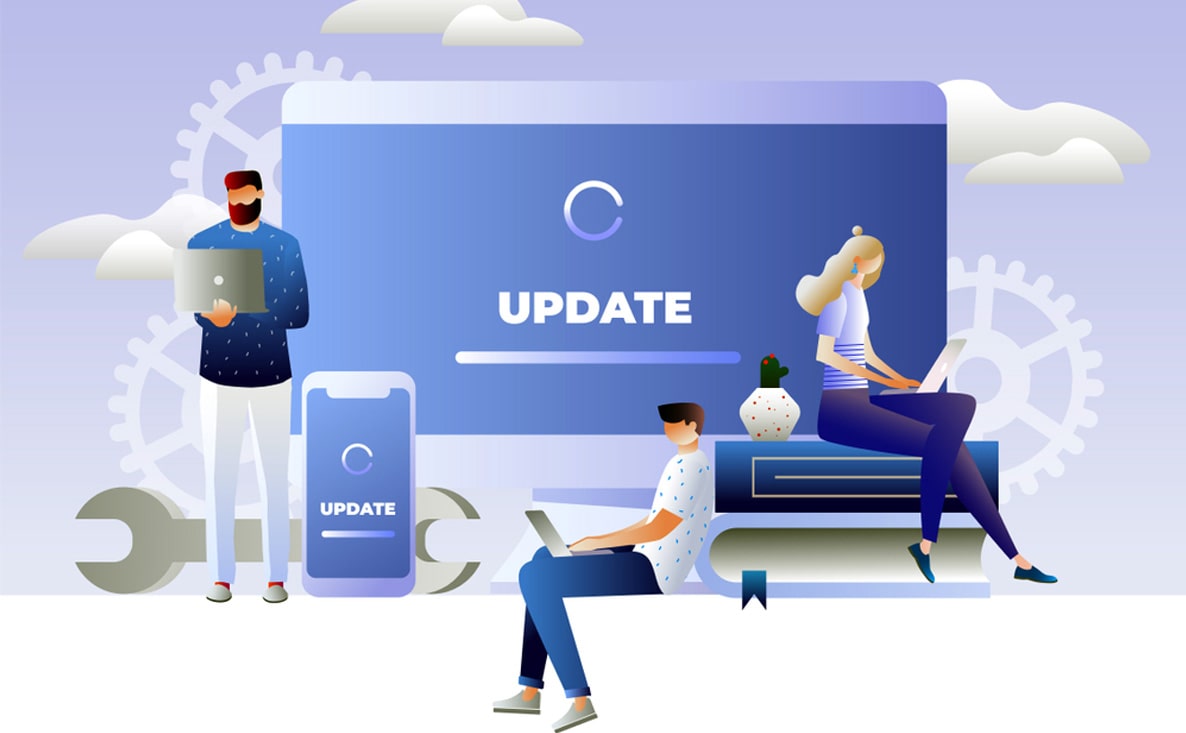Why you should regularly updating your website?

The importance of regularly updating website plugins and content is crucial for several reasons:
- Enhanced Security:
- Regularly updating website plugins and content helps protect your website from security vulnerabilities. Updates often include security patches that address identified weaknesses, reducing the risk of hacking or unauthorized access.
- Improved Performance:
- Updates to plugins and content can enhance the performance of your website. They may include bug fixes, optimizations, and performance improvements, resulting in faster loading times, smoother user experience, and better overall functionality.
- Compatibility with New Technologies:
- Updates ensure your website is compatible with the latest technologies, browsers, and devices. This allows your website to function correctly across various platforms, providing a seamless experience for all users.
- Bug Fixes and Issue Resolution:
- Updates often include bug fixes that address any known issues or glitches. Regularly updating plugins and content ensures that these issues are resolved, preventing any negative impact on your website’s performance and user experience.
- Compatibility with CMS Updates:
- Content Management Systems (CMS) frequently release updates to improve their features and security. Keeping your website’s plugins and content up to date ensures compatibility with CMS updates, preventing compatibility issues or conflicts.
- Access to New Features:
- Updates may introduce new features and functionalities to plugins and content. Regularly updating, you can take advantage of these new additions, enhancing your website’s capabilities and providing new opportunities to engage with your audience.
- SEO Optimization:
- Regularly updating your website’s content helps improve its search engine optimization (SEO) performance. Fresh and relevant content signals to search engines that your website is active and valuable, potentially boosting your rankings and organic traffic.
- User Engagement and Retention:
- Keeping your website’s content updated ensures visitors find relevant and current information. Fresh and engaging content can encourage users to stay longer on your website, explore more pages, and return for future visits.
- Reputation and Credibility:
- An outdated website with outdated content can give the impression that your business inactive or lacks attention to detail. Regularly updating your website shows you are committed to providing accurate and up-to-date information, enhancing your reputation and credibility.
- Reflecting Business Changes:
- Businesses evolve, and your website should reflect these changes. Regular updates allow you to showcase new products, services, promotions, or changes in your business, keeping your website aligned with your current offerings and messaging.
- Keeping Up with Industry Trends:
- Updating your website’s content lets you stay current with industry trends, news, and developments. By sharing relevant and timely information, you position yourself as an authoritative source within your industry and demonstrate your commitment to staying informed.
- Better User Experience:
- Regularly updating your website’s plugins and content ensures users a smooth and seamless experience. It minimizes the risk of broken links, outdated information, or functional issues, providing a positive impression and encouraging users to engage further with your website.
- Customer Trust and Loyalty:
- A well-maintained website instills trust and confidence in your audience. Regular updates show that you are invested in providing the best possible experience for your users, leading to increased trust, loyalty, and customer satisfaction.
- Competitive Advantage:
- Regularly updating your website’s plugins and content, keeps you ahead of competitors who may neglect regular updates. A consistently updated website that offers fresh, valuable content can give you a competitive edge, attracting and retaining more users.
- Adaptation to Changing User Needs:
- Regular updates allow you to adapt your website’s plugins and content to meet your target audience’s changing needs and expectations. By staying current and relevant, you can better cater to their preferences and provide a user experience that aligns with their expectations.
Remember, well-maintained and regularly updated website plugins and content is crucial for maintaining a secure, high-performing, and engaging online presence. It demonstrates your commitment to your audience, improves user experience, and helps you stay competitive in the ever-evolving digital landscape.
Recommended Posts
Subscribe
0 Comments
Newest




